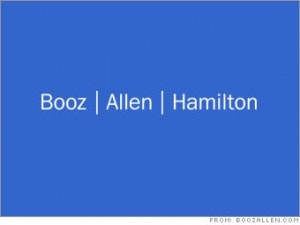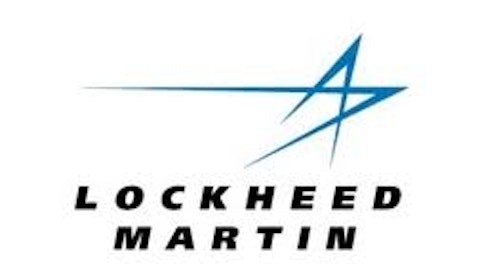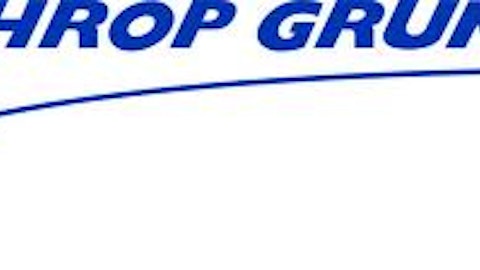In what can only be described as a coup by Booz Allen Hamilton Holding Corporation (NYSE:BAH), the company was awarded a series of contracts by U.S. federal agencies. The company won a trio of five-year contracts from the U.S. Department of Transportation, with whom Booz Allen historically does a lot of business. More specifically, the mandates are with the DOT’s Federal Highway Administration, and they are worth up to a combined $102 million.
Even with the most recent contract wins, government spending is not as predictable as it once was. For instance, in 2009 the U.S. budget for government spending was $3 trillion, with a specific amount earmarked for management and technology consulting. These days, not only are service providers unsure about the amount of money that the federal government is spending, but government agencies are also in the dark.

Here’s the dilemma — if Congress fails to reach a budget agreement by early March, an automatic $85 billion in spending cuts will be triggered across federal agencies.
Diversification Ahead
Booz Allen is a big player in the government sector, but expect to see the company gunning for more contracts in the commercial sector as well, which will help to diversify revenues. Since Booz Allen exited private equity ownership in 2010, the company spun-off its commercial consulting business. A non-compete agreement was put in place at that time so that Booz Allen was limited to servicing the public sector. That non-compete arrangement has since expired, and now the company has entered the commercial and international businesses as well.
Before the spin-off, Booz Allen’s commercial business specialized in the auto sector. Now the company has redefined its focus and will instead specialize in the health care, financial services, and energy sectors. On the international side, Booz Allen’s consulting specialists have current mandates to assist businesses in the Middle East managing the diabetes outbreak in the region.
With the shackles of the non-compete removed, Booz Allen seems positioned well for growth. As a result of a restructuring that began last year, the company removed mid-tier management positions. The cost savings allowed the company to reinvest in its growth and also maintain and add special shareholder dividends.
Competitive Landscape
Defense contractor L-3 Communications Holdings, Inc. (NYSE:LLL), which is a competitor to Booz Allen, lifted its quarterly dividend by 10% last month to $0.55 per share. The company also initiated a $1.5 billion share repurchase program, despite the fact that L3 (NYSE:LLL)’s 4Q earnings declined by nearly 25% amid tax benefits in the same period a year ago. L-3 has been focused on returning value to shareholders because acquisitions activity has been slow, according to chief executive Michael Strianese, who was speaking at the Cowen and Company conference.
L-3 is also adapting to lower government spending by focusing more on its commercial and international segments. For instance, in 2010 sales from government contracts represented more than three-quarters of L-3’s sales. Since that time, the revenue mix has shifted. U.S. Department of Defense contracts now represent 68% of revenues and the company is generating more top-line growth from its international and commercial businesses. One of the few deals that L-3 made in 2012 was its $130 million acquisition of the civil aircraft simulation and training segment from Thales Training & Simulation in the United Kingdom, which underscores L-3’s commitment to growing its international and commercial segments.
Engility Holdings Inc (NYSE:EGL), the government contractor that was spun-off from L-3 Communications last July so that L3 could focus on its international and commercial segments, was recently named the primary contractor for the multi-million dollar assignment it was previously awarded from the Space and Naval Warfare Systems Center. The mandate could be worth as much as $900 million if options are fully exercised. Engility is performing production, installation, and in-service support to the agency for communication, combat and technology systems. The stock is trading about 8% below its historic high.
Engility, with $409 million in 3Q revenue, may be the one in the defense group that is a diamond in the rough. Engility, a pure-play government services business, was formed with the current challenging market conditions in mind. The company considers itself a growth business, and if it is successful in taking market share in the current tough environment is likely to be a leader when the economic environment improves.
Booz Allen’s Outlook
With all of these opportunities plus more in front of Booz Allen, it seems like nothing can slow the company down. Unfortunately, the contracts haven’t fully translated to the top and bottom lines.
In its fiscal 3Q, Booz Allen experienced a 3.5% drop in revenues versus the year ago period. The company blames the shortfall on an increase in “pass-through costs” this year that occurred in low-margin areas and not in its core business, according to management executives speaking at the Cowen & Company conference. For the full year, Booz Allen expects revenues to decline in the low single digits.
The company has a trailing price-to-earnings ratio of only nine, and the stock may be undervalued. Based on the best case scenario for adjusted earnings for the full year, which is $1.65 per share, the P/E ratio is eight at the stock’s current market value.
With much of the performance of defense stocks tied to an uncertain global economy and federal budget, the investment waters in the sector are murky. Nonetheless, as L-3 Communications suggested in recent shareholder materials, “defense down-cycles will eventually turn.” As defense companies continue to pay dividends and compete for market share, and the government continues to spend money, there is opportunity for shareholders to profit.
The article Aerospace and Defense Stock Embraces Commercial Markets originally appeared on Fool.com and is written by Gerelyn Terzo.
Copyright © 1995 – 2013 The Motley Fool, LLC. All rights reserved. The Motley Fool has a disclosure policy.

